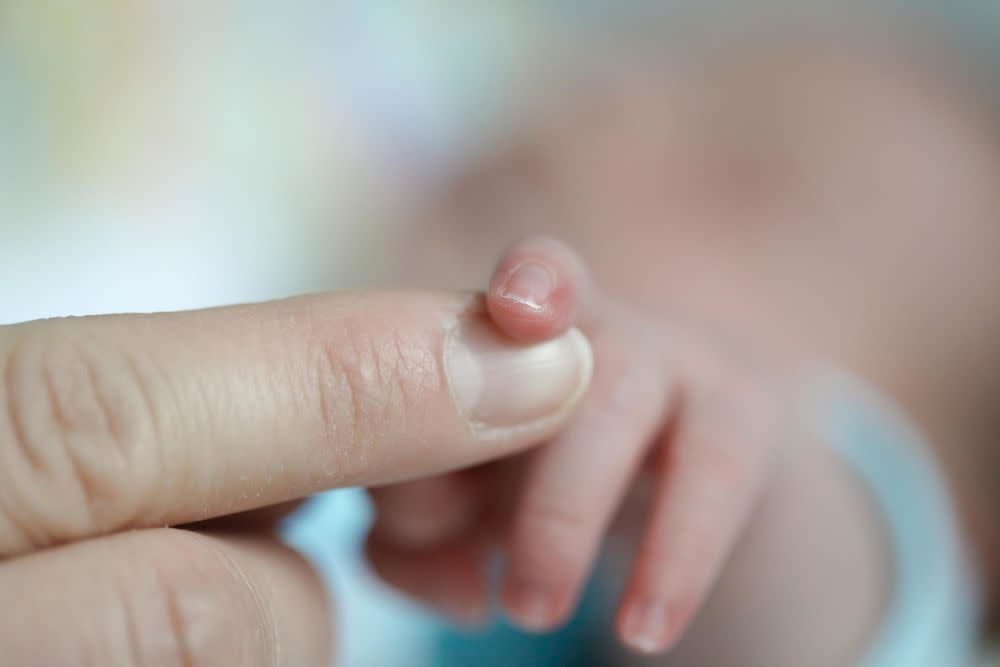What Your Baby’s Twitching Really Means

Have you ever noticed how your baby's facial features and limbs twitch every now and then while he or she is sleeping? You may have assumed the twitches were a natural reaction to a dream—but one study suggests that this might not be the case.
A team of University of Iowa researchers says twitching may be a sign that your baby is developing motor skills. Researchers believe that when a baby moves this way during rapid-eye-movement sleep, it's because the brain is sending information to other parts of the body. This is turn helps babies figure out how to use their bodies in waking hours.
The team first started their research by looking at baby rats. Now, they're looking at the relationship between twitching and the acquisition of motor skills in infants aged two weeks to 18 months. They're finding a significant relationship: For example, there seems to be a link between neck twitches during sleep and an infant's ability to hold up his or her head while awake. Similarly, twitches in the fingers and wrists appear to be tied to a baby's ability to start reaching for things (so be sure to keep sharp objects far away from baby when you start to see this happen!).
RELATED: 10 Truths About Baby Sleep
"We are beginning to see intriguing relationships between twitching and the skills that babies are developing," Mark Blumberg, a University of Iowa professor of psychological and brain sciences, said in a news release.
"Once the infants are able to support their head while they are awake, the proportion of neck twitches to other types of twitches goes down," research scientist Greta Sokoloff added. "We are looking for relationships like these where we can potentially use twitches to predict the onset of new motor skills and perhaps, in time, detect developmental problems."
Every mom wants to understand more about her baby's development, but this news could influence more than just parental understanding: Researchers believe learning more about the development of motor skills can help them learn more about disorders like autism and schizophrenia. "Although often overlooked, there is a substantial problem with the sensorimotor system in these disorders," Blumberg said.
RELATED: Your Baby's Development Week-By-Week
On another note, babies aren't the only ones who twitch while sleeping, according to the researchers. Sometimes adults twitch as well—and while you've probably picked up all of your motor skills by adulthood, your sensorimotor system can still process changes at this point.
"We gain weight, we lose weight, we do strength training, and learn new skills," Blumberg said. "All of these things require re-calibration of our sensorimotor system."

